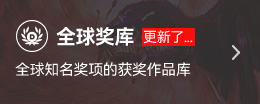拒绝“女神节”,我们总结了一份女性营销防踩雷指南
 又一年的妇女节如期而至。随着女性购买力以及女性消费需求的显著上升,妇女节逐渐成为了各大品牌与平台的又一重要营销阵地。
又一年的妇女节如期而至。随着女性购买力以及女性消费需求的显著上升,妇女节逐渐成为了各大品牌与平台的又一重要营销阵地。
Another year, another International Women’s Day. With the significant increase in women's purchasing power and female consumer demands, this holiday has now become yet another major marketing battlefield for brands and e-commerce platforms.
然而不少品牌在妇女节的营销手段和创意上,尚未与女性消费者建立起真正的情感联系,缺乏对时代思潮与当代女性精神内核的敏锐感知,仅通过在其广告中制造男性欲望投射下的“完美女性”形象、以及围绕前者的各色精致场景来大肆带货,营造出一种由物质构筑而成的理想化社会符号。近年来各大电商平台更趋于将妇女节冠以“女神节”、“女王节”等称号,试图将其渲染为带着玫瑰色滤镜的“女性赞歌”,实质是引导女性认同广告内所展示的理想形象设定,为“获得男性认同”这一最终目的所驱动,而甘心掏腰包。其实,这一充满了“男性凝视”的物化意味的营销手段,在女性话语权崛起的当下,不仅难以奏效,反而适得其反。
However, many brands have failed to establish a genuine emotional connection with their female customers, not bothering to dig into the zeitgeist of the era as well as the inner worlds of contemporary women. Their lackluster portrayal of a “perfect woman” surrounded by lavish scenes is no more than a patriarchal projection, which only translates into an empty symbol constructed of shiny golden objects. In recent years, some Chinese e-commerce platforms are even trying to brand International Women’s Day as “Goddesses' Day” or “Queens' Day”, camouflaging it as an “ode to women” under rose-tinted glasses. But at its core, the goal is just to convince female consumers to buy into this idealized image driven by male appreciation and squander money. In fact, this type of marketing approach which projects a typical “male gaze” might very well backfire at a time when feminism is on the rise.

那么,品牌应该怎么做,才能与新时代的女性消费者共情?今年的妇女节,迈则总结了三条不会出错的铁则。
So what do brands do to empathize with female consumers of the new era? This year’s International Women’s Day, MADJOR put together three guiding principles that can never go wrong.

“男性凝视”是近年来常在性别问题中被提及的词汇,它意味着在男性视角的审美之下形成了一些社会惯例,最终变为对女性施加的约束。具体体现为对身高体重的忧虑,对容貌衣饰的在意等。在此语境下,女性仿佛变成了可供把玩与观赏的客体。
The "male gaze" is a term often mentioned in recent gender equality conversations, implying the act of depicting women from a masculine perspective, which eventually turns into a constraint imposed on women. This can be reflected in women’s concern for height and weight, and the concern for appearance and clothing. In this context, women seem to have become an object to be watched and consumed.

△ 茶颜悦色物化女性的“翻车”案例
“Many hot chicks get milk tea from us. Consider yourself lucky if you pick one up at our store!” – a notorious fail from a popular Changsha-based milk tea brand.
现如今,新媒体的蓬勃发展让女性获得了发声机会。微信、微博、小红书、B站、抖音等社交平台的涌现,不仅抢占了传统媒体的话语权、让大众接触到更多元化的思想,也为女性表达个人主张提供了更多渠道。于是越来越多女性不再满足于被裹挟在时代的审美意识中,拒绝被社会定义,向往更自由的自我表达。事实是,女性的美是多样的、个人的、复合的,而不是“顺从、性感、白幼瘦“的单一审美。或许这就是为什么主打性感的维秘在中国市场节节败退,而喊出“微而足道,无分你我”、主张女性自我认同与多元之美的内外获得了更多消费者的青睐。
These days, the booming social media has given women the opportunity to make their voices heard. Chinese social media platforms such as WeChat, Weibo, Xiaohongshu (RED), Bilibili, and Douyin (TikTok) have not only largely taken over traditional media, but also expose the public to diverse viewpoints including those from women. As a result, more Chinese women are saying no to the mainstream beauty standard, refusing to be defined by society and calling for self-expression. Truth is, women's beauty comes in diverse forms, often very personal and multidimensional, rather than being just "submissive, sexy, light-skinned, young, and thin" - all coveted traits of a Chinese beauty. Maybe that's why the sexy lingerie brand Victoria’s Secret is falling out of fashion in China, while Neiwai, a domestic underwear brand that boldly claims “No body Is Nobody", has gained more consumer favor by advocating for women's self-identity and body inclusivity.




长久以来,女性都以附属品的身份存在:妻子、女儿、母亲……她扮演了许多角色,却唯独不是她自己。但新时代女性并不想通过依附他人来成就自我价值,她们更想作为“自己”发光发热。也因此品牌的营销理念亟需从“女为悦己者容”向“女为悦己而荣”发生转变。变化的背后,是一场女性的内心革命和独立精神人格的进化。
For a long time, women had existed as an appendage to someone. Wife, daughter, mother… She plays many roles, only not herself. But women of modern time refuse to settle for a dependent life. Rather, they aspire to achieve self-worth on their own terms. That’s why a significant shift in brands’ messaging from "winning with beauty " to "winning with inner beauty" is required to echo women’s inner revolution and celebrate a step forward towards mental independence.



△ Nike的“管什么分寸”campaign脱离了传统女性社会角色的窠臼,捕捉到在男性主导的职业场景中发光发热的女性形象。
Nike's "What's the Matter?" campaign sets to break gender stereotypes and honor women’s presence in traditionally male-dominated professions.
品牌的营销创意能在多大程度上能和女性消费者产生共鸣,取决于创意是否能够与她们生命中的某个瞬间产生连结,让她们瞬间进入自己的内心世界,对过往自身的经历与感悟进行搜索匹配,从而从创意中的“她”身发现自己的影子、建立共情。
The extent to which a brand's marketing campaign can resonate with female consumers depends on whether it connects a certain dot in their lives, whether it sends them right down memory lane searching and matching their experiences and emotions. Eventually they will see on the campaign their own reflections and develop an emotional bond with the brand.

在如今销量至上的商业战场上,“品牌温度”这一概念逐渐成为了品牌差异化的关键。产品的推陈出新只是吸引女性消费者的第一驱动,要建立持久有效的驱动力,还要看她们是否能够持续感知品牌的温度——社会责任与人文情怀。抛去销量不谈,品牌应当自问:我们的内容是否真正能够在社会层面对女性群体产生帮助?一个成功的女性营销campaign,必定是站在品牌的角度真切的为女性发声。
In a business world so sales-driven, the idea of "brand warmth" has evolved into a powerful brand differentiator. Frequent product releases are only the attention grabber to attract female consumers, but it takes brand warmth to build a lasting buying drive, by taking up social responsibilities and projecting human emotions. Let’s put sales aside for a moment. Think about the social values of your campaign and the role your brand is playing in society. Is it actually helping the female community make a difference? A successful female marketing campaign must be one that genuinely voices for women.


△ 丁香医生 x ukiss “红妆亦是武装”
“Your Lipstick Is Your Weapon” campaign. Cosmetic brand ukiss collaborated with medical platform Doctor Clove (dxy.com) to give away 1,000 close-to-expiringlipsticks for girls to cross out illegal egg donation ads.
(Messages written with lipsticks: “Don’t hurt yourself.” “Girl, please love yourself.”)
新时代女性不想要“雌竞”,她们对于同性,更多时候保持着一种欣赏、相惜和互助的态度。因此,品牌不妨从联合女性力量的角度出发,通过强调女性群体的互助情谊、为女性建立起情感社区,有效提升品牌好感度;更重要的是延展和加强了创意背后的社会意义,为品牌赋予了精神内核,令女性消费者对品牌产生长久的信任感和认同感。
Women today want no more of that "women hating other women" drama. Mutual appreciation and mutual help are the trends. So brands might want to look at the approach of bringing together the entire female community, by highlighting the support coming from other fellow women, and bonding a sisterhood among the female audience. More importantly, this approach extends and reinforces the social values of the campaign and gives the brand a new dynamic, ensuring lasting trust and brand identification among female consumers.
总的来说,新时代女性消费者在消费观念上愈加趋向多元、包容、独立、自强的底色。品牌们需要有敏锐的视角,对女性议题有充分的洞察和理解,传播正确的、为女性消费者所认同的价值观,方能有效转化。
Generally speaking, female consumers today tend to take on a more diverse, inclusive, independent and self-empowered perspective when making buying decisions. Brands need to dig a bit deeper into gender equality issues with sharp eyes, and spread the right message that can be identified by female consumers to achieve conversion.
祝大家妇女节快乐!迈则衷心希冀每位女性都能首先成为自己,再去活成自己想要的样子!
We wish all the brilliant girls out there a Happy International Women's Day! Stay true to yourself and keep rocking!
转载请在文章开头和结尾显眼处标注:作者、出处和链接。不按规范转载侵权必究。
未经授权严禁转载,授权事宜请联系作者本人,侵权必究。
本文禁止转载,侵权必究。
授权事宜请至数英微信公众号(ID: digitaling) 后台授权,侵权必究。





评论
评论
推荐评论
暂无评论哦,快来评论一下吧!
全部评论(0条)